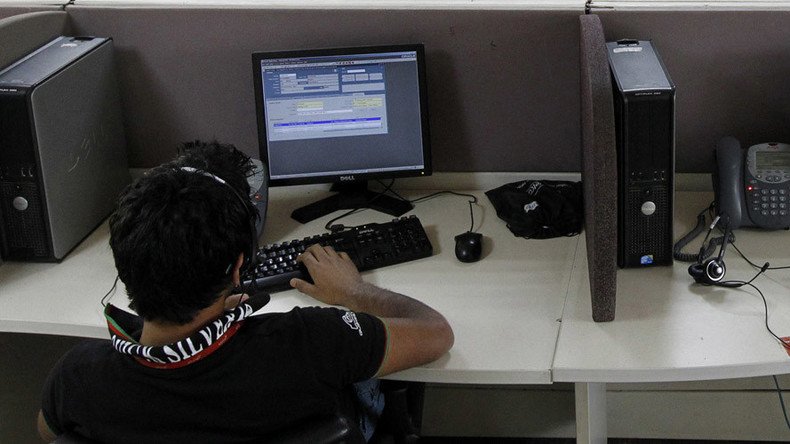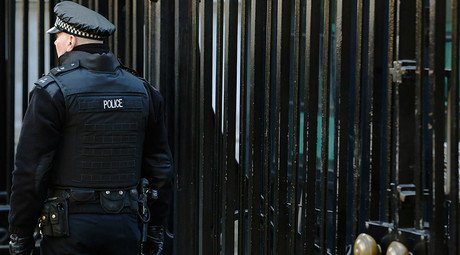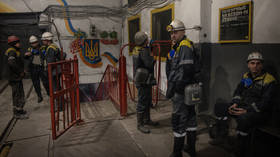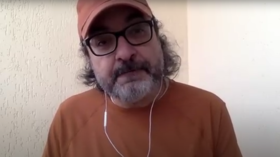British police accused of hiring Indian hackers to spy on journalists & campaigners

The Metropolitan Police is under investigation after complaints it uses hackers in India to illegally crack into the email accounts of journalists and environmental activists.
The Independent Police Complaints Commission (IPCC) is looking into the allegations after receiving an anonymous letter from a person claiming to have been working in the intelligence unit responsible for the hacks.
The letter was originally sent to Green Party peer Baroness Jones of Moulsecoomb.
“For a number of years the unit had been illegally accessing the email accounts of activists,” the letter read.
“This has largely been accomplished because of the contact that one of the officers had developed with counterparts in India who in turn were using hackers to obtain email passwords.”
In the letter, published in part by the Guardian, the whistleblower included passwords to email accounts of the newspaper’s journalists, photographers and four Greenpeace campaigners. The Guardian reporters affected confirmed that the passwords of their hacked accounts were correct.
“When I was told I was on this list, I was at first surprised, then angry and then felt violated,” Cornwall Greenpeace activist Colin Newman told the BBC.
The seasoned campaigner, who has been arrested twice, added that while he trusted the police, “some of my emails were very private; they include details of counseling. I have had sleepless nights.”
If you have ever protested about the closure of a local hospital, or been on a peaceful demo, you could be one of 100's hacked. #spycopshttps://t.co/OwuHM2CqhU
— Jenny Jones (@GreenJennyJones) March 22, 2017
“Even though Greenpeace UK staff, volunteers, and activists were always warned to assume someone was listening to our phone conversations or reading our emails, it still came as a shock to find out I was being watched by the police,” long-time Greenpeace staffer Cat Dorey said.
“It’s creepy to think of strangers reading my personal emails.”
Baroness Jones said on Tuesday evening that “there is more than enough to justify a full-scale criminal investigation into the activities of these police officers and referral to a public inquiry.”
“I have urged the Independent Police Complaints Commission to act quickly to secure further evidence and to find out how many people were victims of this nasty practice.”
As we discover more of #spycops unlawfully targeting environmentalists, here's confirmation of police smearing anti-fracking as "extremism" pic.twitter.com/AAIfNjq9Ad
— Netpol (@policemonitor) March 21, 2017
The allegations come as the IPCC investigates the national domestic extremism and disorder intelligence unit for the possible destruction of several documents in May 2014. Just last month, the watchdog revealed that it had found evidence of the mass shredding of files. This was despite instructions advising that documents should be kept intact to serve as evidence in an inquiry into the undercover policing of political groups.
This week’s whistleblower stated that the destruction of the documents had “been happening for some time and on a far greater scale than the IPCC seems to be aware of.”
“The main reason for destroying these documents is that they reveal that officers were engaged in illegal activities to obtain intelligence on protest groups,” they added.
The chairman of the inquiry, Lord Justice Pitchford, has reportedly asked the author of the letter to contact him confidentially.
READ MORE: Met police spied on UK justice campaigns - report
The Met said it had been advised about the allegations by the IPCC and that the watchdog had “requested the matters were referred to them by the [Metropolitan Police Service - MPS].” It added that “this has been done.”
It also said that while the claims were “deeply troubling,” the service was working “to ensure that all relevant material and associated computer systems are preserved to assist the IPCC's investigation.”














